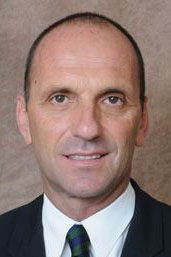President Bharrat Jagdeo has come in for strong criticism from the Caribbean Hotel and Tourism Association (CHTA) for dismissing its concerns about the “tax-riddled industry”.
At the just-concluded 32nd Meeting of the Conference of Heads of Government, in St Kitts and Nevis, Jagdeo rubbished the claim that regional governments were taxing the hotel industry out of existence, describing it as “absolute nonsense.”

“With all due respect, the CHTA is of the view that President Jagdeo speaks from a misinformed position on taxation in the various islands throughout the region and with little or no knowledge of the tourism industry and the contribution it makes to Caribbean economies,” CHTA President Josef Forstmayr said in a statement from Montego Bay, Jamaica, while registering the group’s disappointment.
He said it was for this reason that the CHTA delegation had requested a place on the CARICOM summit agenda. Forstmayr also reiterated that CHTA was very disappointed that tourism was not an agenda item at the CARICOM meetings going on in St. Kitts despite the fact that three years ago CARICOM heads decided to make tourism a regular agenda item at all CARICOM meetings. “It is quite obvious that our political leaders have a narrow and limited perspective on the far-reaching positive effects of tourism on our Caribbean economies,” he added.
The CHTA said it is a well-known fact that the entire supply chain of the hotel industry bears too much of an increasing tax burden; workers are taxed, supplies are taxed, utilities are taxed and guests of hotels are taxed in several ways, including at the hotel, on the airline and at the airport, sometimes with both arrival and departure taxes.
Forstmayr added: “CHTA would like to extend an open invitation to President Jagdeo, and anyone else misinformed, to a discussion forum on tourism to explore the overwhelming, sometimes immeasurable but undeniable impact that tourism has on our Caribbean economies.”
The CHTA noted the 2010 Caribbean Trade and Investment Report, 2010: Strategies For Recovery, Renewal and Reform, where CARICOM said “Caribbean Governments have an important role to play in revitalizing the tourism sector” and acknowledged its duty to “ensure that taxation cost (room tax, departure tax, corporate tax and service charge) does not have too adverse an effect on international competitiveness.” Despite CARICOM’s acknowledgement, the CHTA said it had still not embraced tourism as the number one generator of jobs in the Caribbean.
“We in the Caribbean hotel industry recognize that the economic importance of travel and tourism to the Caribbean is indisputable. However, there is still insufficient awareness and understanding of the industry’s economic contribution and how it permeates the depth and breadth of the general economy and overall fabric of Caribbean society,” Forstmayr stated.
It was noted that travel and tourism directly and indirectly employs more than 1.9 million people in the Caribbean, accounting for one in every 9 jobs as well as 12.8% of the Caribbean’s economic activity—which is more than in any other region in the world.
Forstmayr argued that the benefit of tourist spending impacting into the wider economy is the relevance that needs to be conveyed to the people in the islands so that everyone understands the importance of tourists and the dollars they bring to the economy.
“We need to continue to remind our own people that ‘tourism business means jobs’ not only in the hotels, but for the taxis, the restaurants and the farmers and fishermen that fill the restaurants with food. It also means work for the seamstresses, crafts people, shopkeepers and manufacturers, including all their workers plus the deliverymen as well as the trash collectors,” he said.




